In the name of Grady
Controversy over the name of Henry W. Grady High School is gaining momentum as the school’s renovation project begins.
In 1923, Willis A. Sutton, Atlanta schools superintendent, called him “the greatest man Atlanta ever produced.”
That man’s name has been immortalized on a school building on Charles Allen Drive. But now, Henry Woodfin Grady is at the center of a debate over the significance of the title “Henry W. Grady High School,” due to his racist ideologies.
Leslie Grant, Grady’s district representative for the Atlanta Board of Education, has heard concerns about the school’s name during most of her tenure in office. The renovation, she explains, is an opportune time to take action.
“As we are heading into a new renovation project, it would be an appropriate time to have that conversation,” said Grant. “There’s been a lot of comments over the years, emails, questions — public and anonymous — wanting us to address the issue.”
From a Southerner editorial that opposed the school name and sparked a city-wide response in 2016, to a Georgia State University movement to remove the Henry W. Grady statue in downtown Atlanta in 2019, to the renaming of Henry W. Grady Middle School in Houston, TX in 2016, the efforts to remove the Grady namesake persist.
“If we are going to have this conversation, which again has been coming up most of my term in office, it needs to happen now,” Grant continued. “It needs to come out from the community.”
Grant reached out to senior Royce Mann to understand the opinions of the current students. Mann, the student representative on the school’s Governance Team as well as a staff writer for the Southerner, has taken action around the school to raise awareness in favor of the name change.
“After talking with [Grant], I got in touch with some other students, wrote up a petition and started gathering signatures at lunch,” said Mann, who is white. “We have 150, maybe 200 signatures.” There are currently 1,441 students at Grady.
The petition reads, “Our school was named after Henry W. Grady, a Reconstruction-era journalist and speaker who was owner of the Atlanta Journal Constitution. While Grady’s contributions to journalism were significant, his staunchly racist ideology helped cement white supremacy in the southern United States. His legacy should be studied, not celebrated.” This petition incorrectly identifies the name of the newspaper Grady owned. Grady was the part-owner of the Atlanta Herald and part-owner and editor of the Atlanta Constitution.
STUDENT OPINION
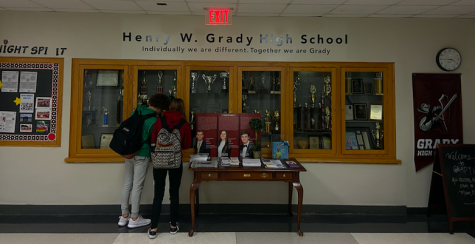
However, the 1,441 students have expressed multiple opinions with varying degrees of support and dissent. From changing the name entirely, to removing the “‘Henry W.,” or adding another person to make a hyphenated name, to leaving the name exactly as it stands, the Grady community is divided.
“I feel like, as a human race, we have come so far; we have overcome racism,” said junior Alexis Washington, who is African American. “We shouldn’t change it because we are too far along and … that name comes with a reputation. When you hear the word ‘Grady,’ you think [of] types of test scores; so changing the name will [make others] say ‘oh the school that used to be ‘Grady.’
Junior Joseph Scott disagrees.
“We, as a human race, have not come near to getting over racism,” said Scott, who is African American and in favor of changing the name. “I feel like this is just another barrier we need to overcome, and if we have the ability to overcome it, we should, no matter what it comes with because a bunch of test scores is not bigger than racism.”
Other high school sports teams, some colleges and universities and businesses offering employment opportunities are familiar with Grady’s positive reputation. Junior Preston Stanberry wants to leave the word “Grady ” in the name for this reason.
I feel like this is just another barrier we need to overcome, and if we have the ability to overcome it, we should, no matter what it comes with because a bunch of test scores is not bigger than racism.
— Junior Joseph Scott
“A name has a lot to do with what people think about you. You say I go to Grady and people know what that is. It’s a well-known and good school,” said Stanberry. “If we can keep just ‘Grady High School’ and not ‘Henry W,’ because it’s the school and not the person, because ‘Grady’ means something different to us.”
Senior Nakiyah Davis brings up Henry W. Grady’s opinion on segregation.
“The fact that he was against integration of schools, I don’t feel like it reflects on our school’s diversity, but we still have his name on our building, and it’s not reflecting good,” said Davis, who is African American.
Sophomore Everett Stubin, who is white, wants the entire name to be changed.
“I hear the argument that it’s part of our history, but I don’t think we need to commemorate him, and I think it’s really backwards that our school still has his name,” Stubin said.
Senior A’niyah Davis-Bryant, who is African- American, believes the name of the school does not have much effect on the student population.
“I don’t think it really matters, because, at the end of the day, you aren’t changing the school,” said Davis-Bryant, who is African American. “If I were to change my name, that doesn’t change who I am as a person. That’s just not what I want to be called anymore. That’s why I feel like it should be majority rules; so, if everyone decides they don’t want to be named after a racist, then we won’t be named after a racist.”
However, the fear of historical erasure is present.
“I don’t think we should change it at all because there’s a lot of different things with different names that have racist backgrounds,” said Bradley Hamilton, another African-American student. “That would mean we would have to change all of them. It has a racist background to it, but it is just a name. Like my name, Hamilton, has a racist background to it. So, should I change my name?”
Lee Pope, AP United States history teacher, chooses to view the name as an opportunity to examine history.
“As a history teacher, if we take down monuments, then we can’t look at them and say ‘that person was bad,’” Pope said. “There’s another side to this. It’s a monument to how far we have come, that we aren’t like that anymore. I get worried about whitewashing history. Some of the names we need to remember.”
Pope addressed that Henry W. Grady was prominent during Reconstruction, the period following the Civil War, and held the views of the era.
“Think about Abraham Lincoln, the Great Emancipator, but by our definition, he was a racist, too,” Pope said. “He ran on the platform ‘let’s keep slavery where it is.’ He is considered to be the most progressive white man of the 19th century, and, yet, he was a racist by our modern definition.”
Senior Declan McCarthy agrees.
“We should not change the name,” said McCarthy, who is white. “I disagree with the reason why people want to change it. In the end, Henry W. Grady was racist, but he was a sort of chill racist at a time where everyone else was super racist. You can find people at the time that weren’t racist, but in the end, the things they did paled in comparison to the things he did as a journalist. You do have to keep in mind how different things were.”
Mann says that because Grady held a great amount of power during the 19th century, his views were more significant.
“So many people held those views at the time, but not everybody used their influence to really cement their views into the systems of the South,” Mann said. “He misrepresented the South as being more equal, more inclusive, and more fair, so that then businesses would invest in the South. But in actuality, that’s not how the South was, and he, himself, wasn’t doing anything to make the South more equal and more fair.”
In 2016, The Southerner published an editorial titled “School needs more inclusive namesake.” The article asked for a new name that would “match our name with our goals.”
Chloe Prendergast was on the editorial board in 2016 and helped write the article.
“I think that it was and remains the right decision,” said Prendergast, who is white. “I think that when people think of ‘Grady,’ they don’t think of the man. They think of the time and place and people at the school, so it’s an attachment to something that feels void of broader political connotations, even if it’s not, and can never be.”
The 2016 editorial came right after the Houston Independent School District in Texas changed the name of four schools that were named after Confederate Army figures and their family members. Henry Grady Middle School, Richard Dowling Middle School, Lee High School and Thomas “Stonewall” Jackson Middle School were all renamed.
ALUMNI OPINION
Alumni opinions of the name change are varied. Some strongly oppose; some are completely in favor, but many fall somewhere in between, unsure of what to do.
Former student, Pierce Huff ,‘87, who is African American, was the student body co-president and Editor-in-Chief of the Southerner.
“At the end of the day, it doesn’t matter what the school is named,” Huff said. “The school is a family. It’s a brotherhood and a sisterhood. I am torn. I can see why people want to change the name, but I can also see that it’s a tradition.”
Huff continued by noting the environment of the building.
“If you are changing names of buildings in the south, then you’ll be changing the names every day of the week,” Huff said.
Some former students are against the renaming. Tom Dell, ‘63, who is white and graduated from Grady a year after it was integrated and has recently served on the board of the Grady Foundation, opposes the name change but understands the petition’s motivation.
“It would be hurtful; it’s taking away a little bit of your identity,” Dell said. “But you want to go to a school that would make you feel welcome. I wouldn’t want to walk into ‘Adolf Hitler High School.’”
Dorothy Fierman Carillo, ‘63, also feels as though part of her identity would be taken away and does not believe Grady was an outspoken racist.
“There are so many racists in Georgia that are so much worse,” Carillo said. “I don’t like the fact that the basis of the name change is ‘because he is racist’ because, by that logic, every school would have to be changed: Thomas Jefferson, George Washington. For his time, Henry Grady was a moderate, and if he was alive today, he would not stand in the way of integration.”
However, Carillo understands why some students would want to change and says she would still donate money to the school if it were changed.
“I can understand if you’d like your school to be more representative of today, and I think the hyphenated name is a good idea,” Carillo said.
A hyphenated name has been proposed by some students using names like Ida B. Wells, an African-American journalist or Frederick Law Olmstead, a local landscape architect who designed Piedmont Park.
If the name change were to take place, the school would be labeled with its third name in history. Before 1947, two high schools, Boys High and Tech High, were operating in the same building on Charles Allen Drive between 8th and 10th streets and Monroe Drive. In 1947, Boys High and Tech High combined and became Henry W. Grady High School.
However, after being cemented for 73 years, the current name has generated support.
“From the 30 or so emails I got from other alumni [in regards to the name change], the ponderous were on the “hell no” side because we have such fond memories of Grady,” Dell said.
Grady’s yearbook, The Orator, published an endorsement of Henry W. Grady in the high school’s first yearbook in 1948.
“Surely it was such immortals as he that prompted the educational authorities of Atlanta to name the city’s schools so that they would become living monuments to Georgia’s heroes,” reads the yearbook. “In our name, Henry Grady, we received a great heritage and great challenge.”
ABOUT GRADY
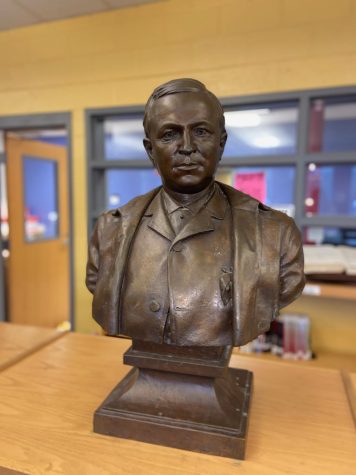
Henry Woodfin Grady, who died in 1889 at age 39, was part owner of both the Atlanta Herald and the Atlanta Constitution, where he also served as an editor. He used these newspapers as platforms to express his political beliefs, most prominently his views of white supremacy and his push to bring Northern investors to spark economic growth in Atlanta after the Civil War.
As a powerful member of the community, Grady became the leader of the Atlanta Ring, a group of pro-industry and white supremacist Democrats who influenced elections for the governor and the state Senate.
Grady was an avid proponent for white supremacy. According to the book, “An American Dilemma: The Negro Problem and Modern Democracy” by Gunnar Myrdal, Grady said “the supremacy of the white race must be maintained forever.”
“The whites and blacks must walk in separate paths in the South,” Grady said. “This means separate schools, separate churches, separate accommodations everywhere — but equal accommodations where the same money is charged or where the state provides for the citizens.”
However, Grady contradicted these ideas when trying to encourage Northern investors to come to the South. He spoke to the New England Society in New York City on Dec. 21, 1886 in an attempt to encourage Northern investment in Atlanta. Grady opened his speech with a quote about “the New South.”
“’There was a South of slavery and secession — that South is dead. There is a South of union and freedom — that South, thank God, is living, breathing, growing every hour.’ These words, delivered from the immortal lips of Benjamin H. Hill, at Tammany Hall, in 1866, true then and true now, I shall make my text to-night,” Grady said.
Grady then said slavery and agriculture “could neither give nor maintain healthy growth,” and “the new south” presents “a social system compact and closely knitted.”
“As [Atlanta] stands upright, full-statured and equal among the people of the earth, breathing the keen air and looking out upon the expanded horizon, she understands that her emancipation came because, through the inscrutable wisdom of God, her honest purpose was crossed and her brave armies were beaten,” Grady said in his speech.
Grady claimed that African Americans had fair treatment in the South in order to lure Northern businessmen to the region. This pleased investors and sparked economic growth.
OTHER CONTROVERSIAL NAMESAKES
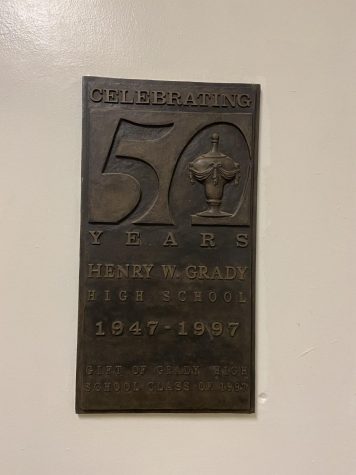
Grady was praised by the community with namesakes. Due to his advocacy for a public hospital, Grady Memorial Hospital was named after him. Due to his involvement in newspapers, the University of Georgia in Athens, where Grady was born, named the Henry W. Grady College of Journalism and Mass Communications in 1921.
According to the Atlanta Historical Society, two years after his death, a statue of Grady was erected on Oct. 21, 1891, at Marietta and Forsyth streets in Downtown Atlanta. The base described Grady as a “Journalist,” “Orator” and “Patriot.”
The statue garnered protests from Georgia State University students. The university’s student newspaper, The Signal, published an editorial on Dec. 3, 2019.
“[Grady] might as well be the poster child for Atlanta’s continued glorification of bygone racist icons,” the editorial read. “[Grady] maintained an overt and revolting desire for the white race to reign supreme.”
Pope, however, acknowledges that times were different and morals of today were rare in the 19th century.
“Grady was not considered a racist for the time,” Pope said. “Grady brought the World’s Fair and invited African Americans. It was progressive in the 19th century.”
The state government of Georgia has historically protected monuments and references to controversial pasts. Georgia Senate Bill 77 states that “It shall be unlawful for any person, firm, corporation or other entity to mutilate, deface, defile or abuse contemptuously any publicly owned monument, located, erected, constructed, created or maintained on property owned by an agency or the State of Georgia. No officer or agency shall remove or conceal from display any such monument, plaque, marker, or memorial for the purpose of preventing the visible display of the same. A violation of this paragraph shall constitute a misdemeanor.”
PROCESS OF CHANGING A NAME
I’m sure there will be people that will be upset that we are even considering this, but I do think that even though things were the way they were in the past, they don’t have to be that way in the future. — Grady District Representative Leslie Grant
According to Grant, Grady’s district representative on the school board, a formal name-changing could only begin if the chair of the Atlanta school board assigns a committee to the task. The board member of the school would preside over the committee. In Grady’s case, that board member would be Grant. The committee would be comprised of five to seven members.
Other representatives may include individuals from neighborhood planning units, school administration, and cluster parent groups. Once the committee is formed, which is the chair’s appointment, then nominations are accepted by the committee. Anyone can nominate a name for the school.
“We would have a public input with this,” Grant said. “This would be open to more than just folks who show up at a meeting.”
Grant also said if a name change were to take place, it would happen within the next few months.
“I’m sure it’s going to be an interesting conversation,” Grant said. “I’m sure there will be people that will be upset that we are even considering this, but I do think that even though things were the way they were in the past, they don’t have to be that way in the future.”

Charlotte Spears is a senior and the co-editor-in-chief of The Southerner. When she is not working on the newspaper and website, she is playing varsity...


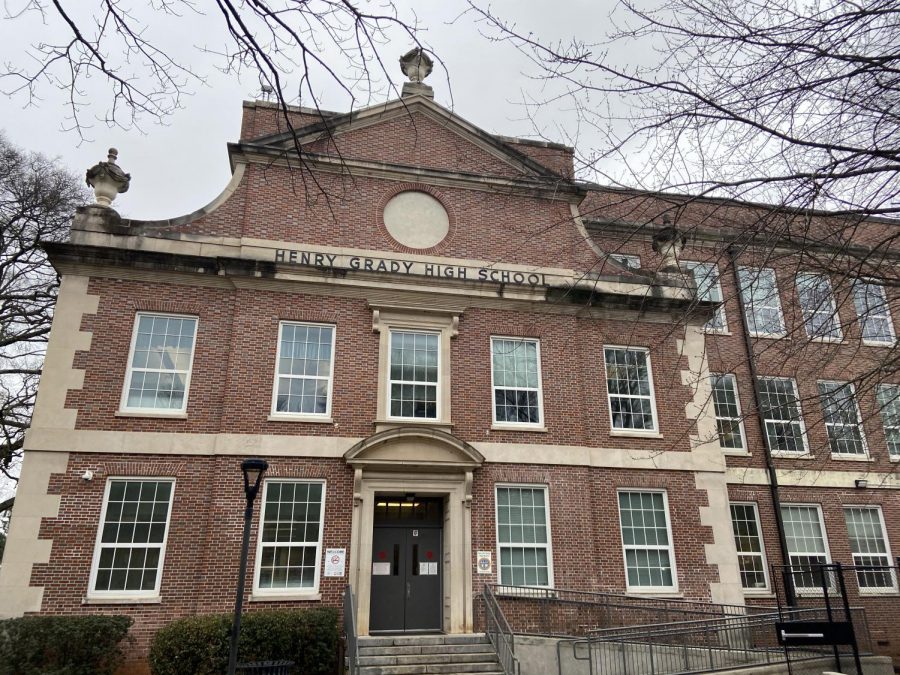

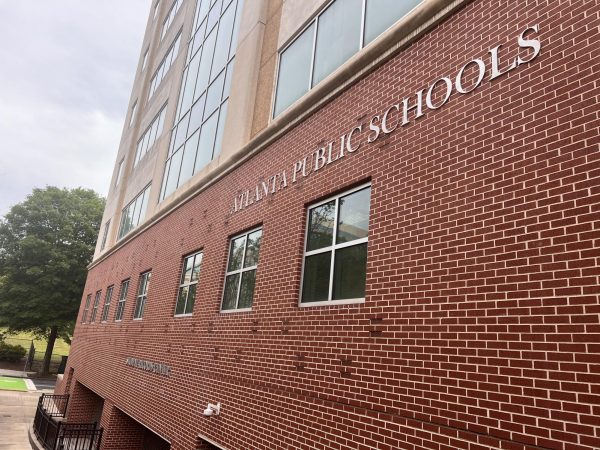
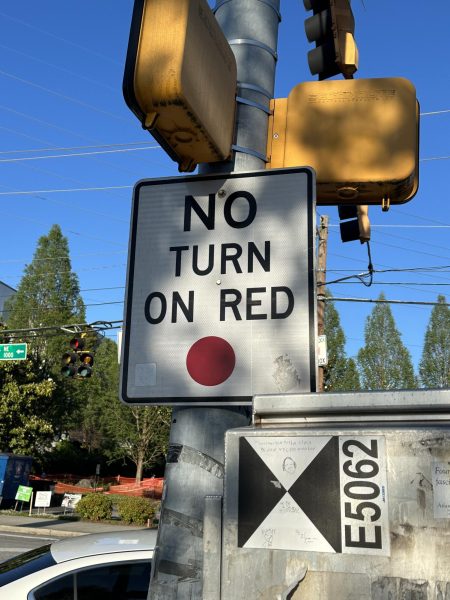
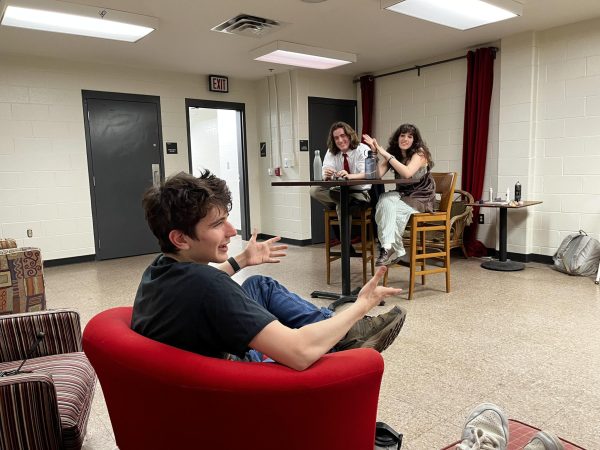

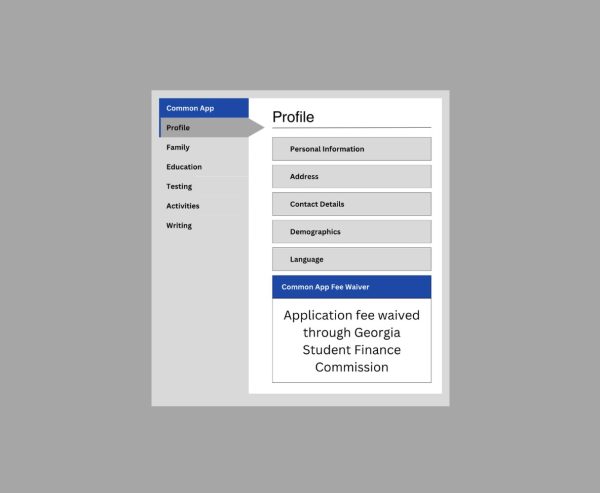
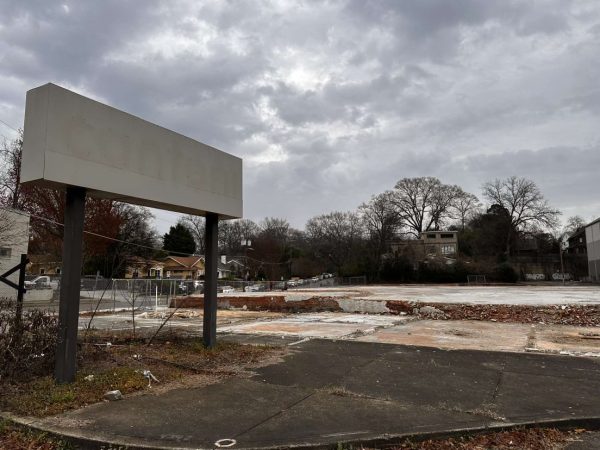
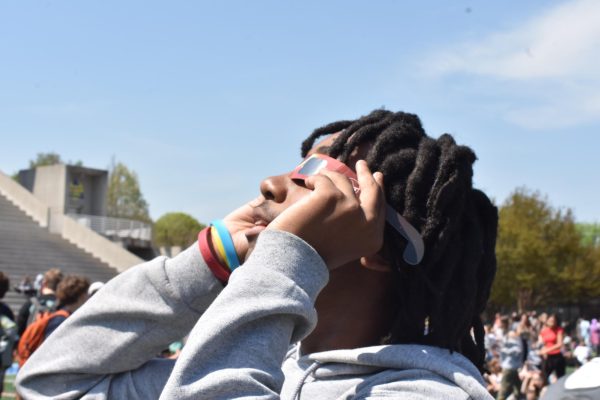

Joyce Dick Shaw • Aug 3, 2020 at 2:10 pm
History is not there for you to like or dislike.
If it offends you, all the better because then, you are less likely to repeat it.
It is not yours to erase. It belongs to all of us.
(These are not my words, but am in total agreement)
Joyce Dick Houk Shaw
Grady High School
Class of 1958
Angela D Douglas • Jun 28, 2020 at 3:48 pm
My son went to Grady High School in 2005-2008. I feel that the school board should change its name. Period
D. Rebecca Snow • Feb 26, 2020 at 3:46 pm
I have sent copies of the letter below which I wrote last week to the Atlanta Board pf Education, The Grady Foundation, and The Atlanta-Journal Constitution which I will share with the Southerner. I am a proud Class of 1964 alumnus of Henry W. Grady High School who finds this petition to change its name abhorrent. My letter below will explain my viewpoint. I note that the petition for Grady”s name change has between 180 -200 signatures; hardly representative of a student body of over 1,400.
My letter is as follows:
To Whom It May Concern:
RE: The petition to change the name of Henry W. Grady High School, Atlanta, GA
As a proud alumnus of Henry W, Grady High School, Class of 1964, I am writing to protest this abominable petition.
To address the reason behind this petition…..that Henry W. Grady was a segregationist/proponent of white supremacy…..of course, in this present day, are not admirable qualities. Henry W. Grady was shaped by the influences of his post civil war/reconstruction times. That sad, certainly unpleasant history which cannot be erased, also shaped Henry W. Grady into the person who greatly influenced the “New South” and made it possible for Atlanta to rebuild and become the great city it is today.
What Henry W. Grady did for the city of Atlanta and the State of Georgia in his time should never be dismissed. He has been called a person of vision during the Reconstruction after the Civil War calling for industrialization to come to the South, Georgia in particular, in order for his beloved State to rebuild, as he knew that staying an agrarian State would be fruitless. Grady traveled numerous times to the Northern states garnering support for this idea. (While on one of these trips to Boston, an illness exacerbated and by the time he made it back to Atlanta, he had developed pneumonia and subsequently died at the young age of 39.) Albeit, without his eloquence as an orator and efforts to gain support from the industrialized Northern cities of his time, Atlanta would NOT have become the city it is …..the city that millions of citizens enjoy today.
In addition to bringing industrialization to Georgia, he also founded The Georgia Institute of Technology (Georgia Tech).
In general, the stripping of history is egregious. Throughout the history of this planet horrible acts have been committed, but it has been documented so that peoples of today can read about these atrocities, hopefully learn from mankind’s failings and then rise above never to repeat the atrocities of the past.
I put to you….shall society abolish, for example, the memorials to the dead of the holocaust? In not so many years, there will no longer be any survivors to tell of their experiences. Even now, there are many who say those atrocities never happened! The egregious acts under the German leader Hitler in the days leading up to and during World War II NEED to be remembered so history will not be repeated.
History did happen….let us not abolish it, but try to continue to learn from it. There’s an old saying: “Don’t throw the baby out with the bath water!” (if you’re not familiar with this saying, GOOGLE it!) Henry W. Grady had numerous, admirable qualities and, as I said above, Atlanta AND Henry W. Grady High School would not have become what they are today had it not been for him.
D. Rebecca Snow
Alumnus of Henry W. Grady High School, Class of 1964
Hedy Schreibman Borenstein • Feb 16, 2020 at 10:12 am
None of the above information justifies changing the name of Grady High School. The renovation, the low test scores, none of it.
I implore you to respect this distinguished and honored man Henry Grady who was a tremendous force in changing the south after the Civil War and a journalist and orator by allowing his name to live on in our great city. I, along with many others, are opposed to any name change because of our belief system. We do not call this great man a “segregationist”, because he wasn’t one.
I am going to keep the hope that the Southerner, the City, Charlotte Spears, Carillo, Huff, and all of you others in the City of Atlanta Schools who have nothing to focus on but putting an end to the history of our state and do it quickly and hope it goes away in the wind. Shame on all of you, and this is exactly why we should show the rest of the world how important it is for us to relish in our history, Notice, I didn’t say slavery. Henry Grady worked hard and strong to change the South from Civil War days, and he deserves the honor. And, boy, have there been many changes since then!!!!! Don’t believe me? READ THE HISTORY!!!! Don’t make this outragious change of names that will affect our school, monuments, hospitals, etc.